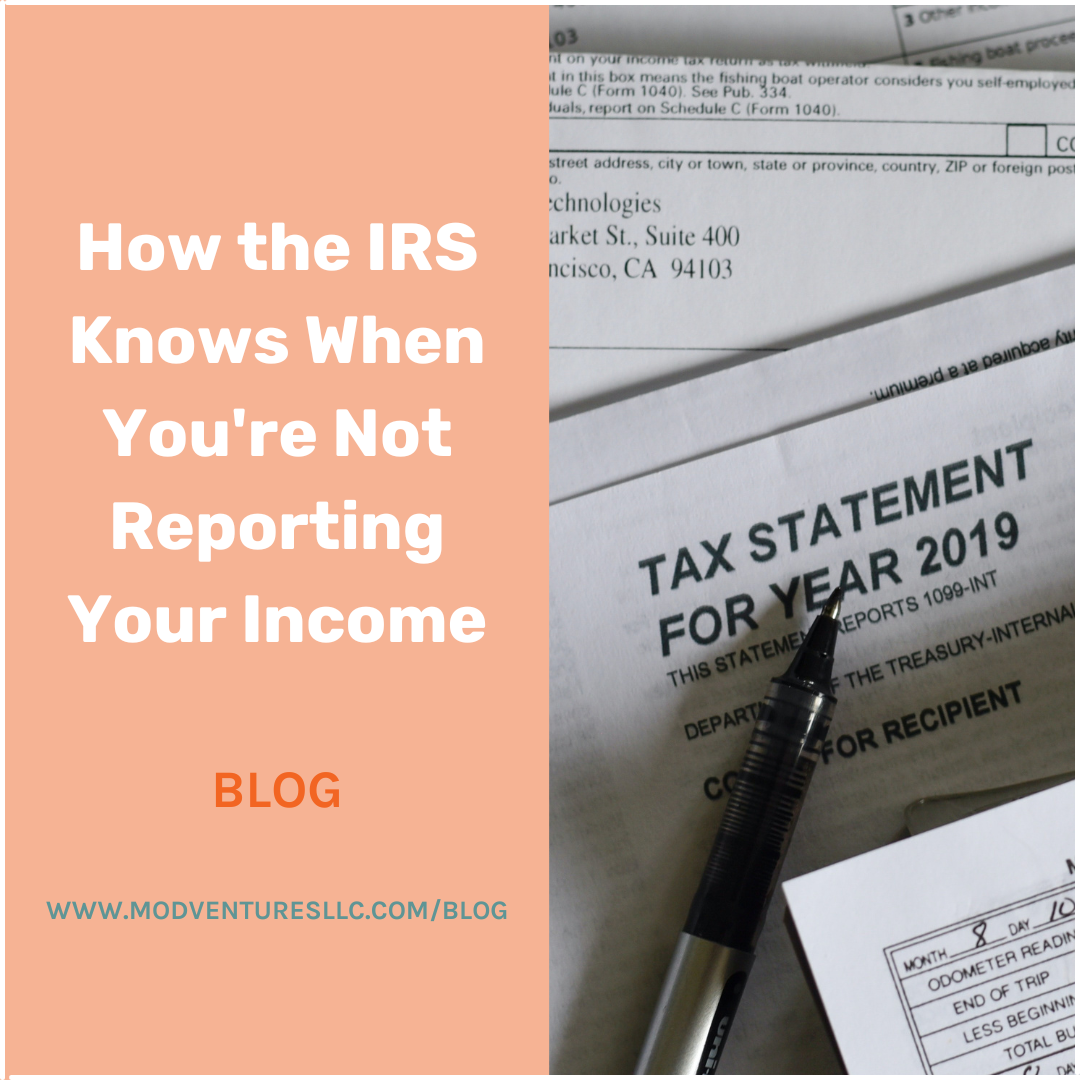By: Gabrielle Luoma CPA, CGMA
By: Gabrielle Luoma CPA, CGMA
While it’s tempting to underreport your income when you’re not earning a lot – or maybe your earnings from your “side hustle” don’t compare to your full-time business income, or even when you’ve simply forgotten a portion of your income thanks to a lack of organization – it’s never a good idea to not report income to the IRS.
The IRS will always discover when you’re not reporting your income, whether it’s immediate or years from now.You’ll know when the IRS thinks you’ve made a mistake in your reporting by receiving aletter in the mail either stating that you’re being audited or you owe.
How Does The IRS Know You’re Not Reporting Your Income?
The IRS receives information from third parties, such as employers and financial institutions, to determine your possible income. With the use of an automated system, theAutomated Underreporter, the IRS compares the income reported by these third parties to the income reported on your return. This allows the IRS to notice potential discrepancies.
If there is a potential discrepancy, a tax examiner will look further into your reported income. They’ll compare the information reported to the IRS by employers, banks, businesses, and of payers to the income, credits, and deductions on your report.
What Happens When You Underreport Your Income?
Once the IRS has discovered you’ve underreported your income, whether intentionally or unintentionally, you will be exposed to two possible penalties. One is a tax penalty, the other is a possible criminal prosecution.
Tax Penalties for Underreported Income
There are two types of tax penalties for underreported income, the negligence penalty and the penalty for substantial understatement of your tax liability. Both penalties are for 20% of the underpayment of tax that resulted from the underreported income.
The IRS may waive these penalties if a reasonable cause exists. For example, if you made a few small errors when filing your tax return. If you’re dealing with a substantial understatement, it becomes trickier and will rely on whether you can prove that it’s due to an innocent mistake or thanks to willful neglect.
Criminal Penalties for Underreported Income
When it’s determined that you’ve willfully underreported your income, it can quickly become an accusation of willful tax evasion.Willful tax evasion, such as underreporting income or filing a false tax return can be penalized with criminal charges – typically a felony tax evasion charge and sometimes even jail time.
How to Accurately Report Your Income to the IRS
Part of ensuring you’re accurately reporting your income to the IRS is ensuring that you have a system in place to track your income and expenses. While many smaller businesses – like single-member LLCs – can rely on programs such asQuickbooks, larger businesses should invest in a team dedicated to keeping track of their finances.
An accounting or bookkeeping team can be hired in-house or virtually. For many businesses, a better investment is in CAS or Client Advisory Services, an accounting service that adapts to the stage of your business. This allows you to have more support in times of growth and adequate support during slow periods.
If you’re ready to keep your finances organized and establish a secure financial team, connect with MOD VENTURES LLC today.
You May Also Love
CLOSE






